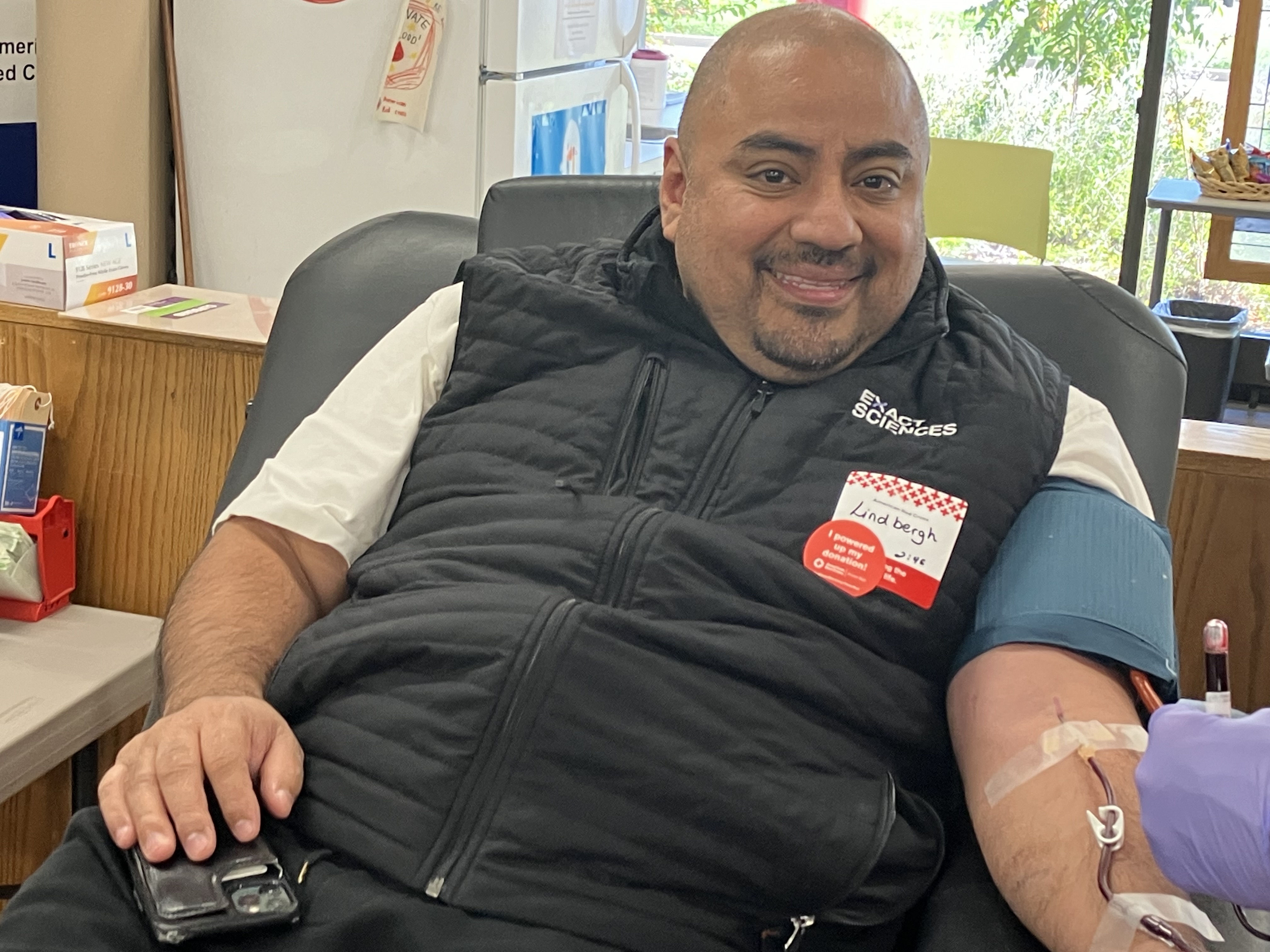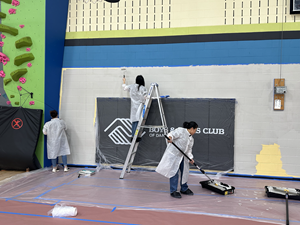Until his twins were born about 20 years ago, Lindbergh Rodriguez had been a casual blood donor.
But when one of his infant sons fell ill and needed blood transfusions while doctors worked toward a diagnosis, Rodriguez became committed.
“From then on, I donated whenever I could, as much as I could,” he says.
In two decades, the correspondence associate in Exact Sciences’ finance department has donated more than six gallons of blood. He received a pin last year from the American Red Cross to celebrate the milestone.
Donated blood helps patients of all ages, including accident and burn victims, heart surgery and organ transplant patients, and those battling cancer. As the largest blood supplier in the U.S., the American Red Cross provides 40% of the nation’s blood. It collects donations from people like Rodriguez who are eager to give of themselves to help others.
Blood from drives like the ones held at Exact Sciences help to fuel that supply.
Through corporate drives, Exact Sciences’ Madison workforce alone has given 741 units of blood since 2019. One unit of blood equals roughly one pint. It’s a standardized amount that doctors use in treating patients.
Donated blood and platelets go to the Red Cross, where they are tested for infectious diseases, separated into blood components, and then distributed to hospital partners for transfusion to patients. Because the Red Cross is a national blood system, someone’s blood donation could help a person down the street or across the country.
In addition to supplying blood, the American Red Cross of Wisconsin provides thousands of people with comfort and essentials after local disasters — mostly home fires. It teams up with local fire departments and community partners to visit homes and share fire safety information, and it installs free smoke alarms in homes where they are needed. It also provides classes and training in lifeguarding, CPR, and other preparedness skills.
A network of volunteers performs about 90% of Red Cross services, engaging at every level of the organization to advance its mission to prevent and alleviate human suffering in the face of emergencies.
“In addition to hosting blood drives on-site, Exact Sciences gives an annual gift to the American Red Cross,” says Louri Christie, corporate impact operations manager at Exact Sciences. “This gift allows us to make sure we are involved in and supporting all our communities in their moment of need. We never want anyone to be in crisis, but we know it happens, and we want the American Red Cross to have our support when it does.”
Beyond local initiatives, collaborating with the Red Cross lets Exact Sciences' international workforce participate in workplace giving campaigns. When U.S. employees participate in an annual United Way drive, for example, team members overseas are encouraged to join in by supporting the International Committee of the Red Cross. It helps families and communities affected by armed conflict in regions around the world.
Back in Madison, Rodriguez will keep giving blood.
“It’s a way for me to help people,” he says. “Sometimes you can’t help a lot with what you have, but this is a good way to give something. Donating blood helps with people’s health — that’s what’s important to me, and it feels good.”

How blood donations help
Red cells: Given to trauma and surgery patients to help carry oxygen through the bodyPlatelets: Benefit cancer patients, as some cancer treatments prevent patients from producing their own
Plasma: Administered to burn victims to help maintain blood pressure and other vital functions
Whole blood: Help people with sickle cell disease and other chronic diseases
Learn more about blood donation with the American Red Cross.
Source: American Red Cross


